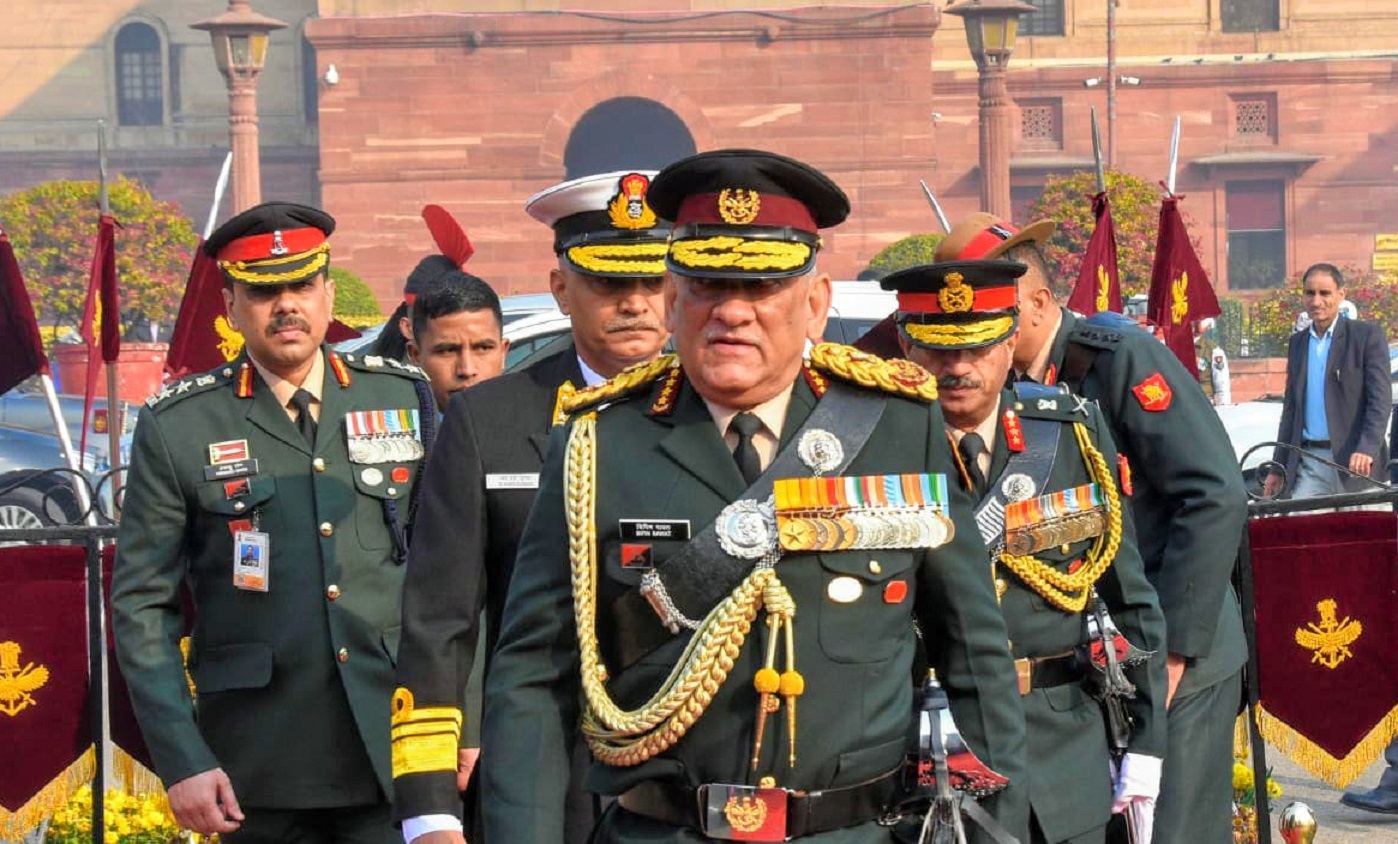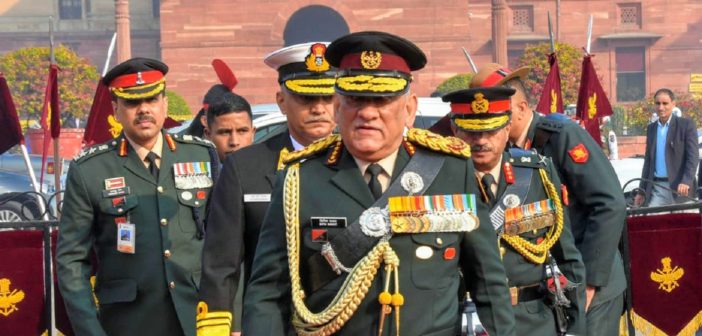
By Sarosh Bana, Mumbai Correspondent
In what is a major milestone in India’s military history, the government yesterday appointed the country’s first Chief of Defence Staff (CDS) since Independence from the British in 1947.
And thereby stirs a controversy.
The Hindu right wing Bharatiya Janata Party (BJP)-led government is no stranger to discord, taking decisions that often inflame the public, as with its introduction of the new Citizenship law that has for the past three weeks sparked violent protests across the land. Twenty-two persons have been gunned down by the police and hundreds maimed, many of them university and college students, the pain aggravated by the government’s consequent praise of the police for their action.
On the CDS issue as well, the government ignored widespread reservations and went ahead in appointing the retiring Army chief, Gen. Bipin Rawat, as India’s supreme military authority. The move was nevertheless anticipated, with the government all along handpicking administrators deemed acquiescent to the political leadership for top jobs, thereby compromising key establishments like the armed forces, investigation, constabulary and cultural agencies, the Election Commission, Reserve Bank, and even the courts.
Gen. Rawat has regularly disregarded service rules in making political statements supportive of the government, and just days before his appointment as the CDS, he had made a stunning assertion that paralleled the government’s condemnation of the students spearheading the nationwide protests against the Citizenship act. The public is disquieted by his statement as it sees the Army chief railing against his own people when he should be as vocal against external aggressors. Law and order, after all, is the purview of the police and not the army.
The General had also commended a Major who in 2017 had tied a Kashmiri civilian to the front of his jeep so as to deter stone-pelters from targeting his convoy. He had also counselled protesters to fire at soldiers instead of hurling stones, so that the Army could then do as it pleased against them. He had added, “We are a friendly army, but when we are called to restore law and order, people have to be afraid of us.” On another occasion, he had commented that if women were to be deployed in combat, they would complain about men peeping into their tents while they were changing their clothes. “So we will have to give a sheet round her,” he had said.
There is a prevailing view that by selecting Gen. Rawat, the government is at once creating and undermining a sensitive assignment that entails supervision of all the tri-Services organisations and agencies, including those related to Cyber and Space, and functioning as the Military Adviser to the Nuclear Command Authority.
An overtly authoritarian government like the incumbent one finds comfort in a pliant military. It had appointed Gen. Rawat Chief of the Army Staff (COAS) in 2016 by superseding two officers senior to him, contending that it was guided by considerations of merit rather than seniority. It had similarly bypassed two senior officers in appointing the current navy chief.
Though the government has the prerogative in making out of turn appointments, the principle of seniority has been the tradition. Discounting this principle has wide implications, as it demoralises the rank and file, and politicises the armed forces by motivating those officers in line to divert their energies to building up the right political nexuses. Such a selection also raises compelling questions, such as whether those superseded are less competent and if that were the case, how do they reach the positions they do.
This raises suspicions that Gen. Rawat may have plotted his rise by popularising himself with the ruling dispensation. While the CDS has a major responsibility to fulfil towards the nation and its armed forces, a politicised entity can make military management a casualty.
India was hitherto the only large democracy bereft of a single point military advisor. The CDS’s appointment capped an interminable process, there not having been one single commander of the Indian Army, Indian Navy and Indian Air Force.
The call for a CDS finally gathered steam once Prime Minister Narendra Modi endorsed the post during his Independence Day speech on 15 August this year. The announcement of the CDS’s post was, however, deftly timed. It followed the retirement on 30 September of Air Chief Marshal B.S. Dhanoa, who was the Chairman of the Chiefs of Staff Committee (COSC) as the seniormost in tenure of the three service chiefs. His retirement paved the way for Gen. Rawat to be the COSC.
Though designated the “first among equals”, the CDS will hold the four-star rank alongside salary and perquisites on par with a service chief. His mandate is to bring about jointness in operation, logistics, transport, training, support services, communications, repairs and maintenance of the three Services, within three years of assuming office. He is moreover tasked to enable the Indian armed forces to implement coordinated defence doctrines and procedures.
It hence remains to be seen whether the CDS will be able to execute his charter so deftly delineated on paper, or he will become just another layer in the defence apparatus, functioning from the shadows of the political leadership.






